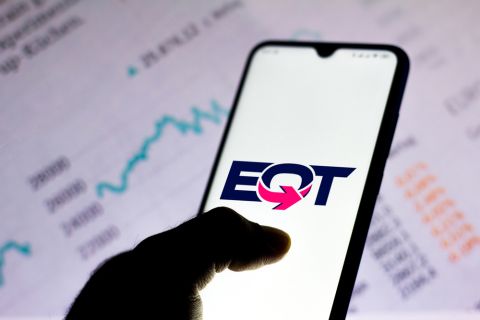
Oil major Exxon Mobil will be excluded from ‘climate aware’ funds at UBS Asset Management. (Source: Shutterstock.com)
As an eventful year draws to a close, we’ve been reflecting on some of the hottest topics of 2021 in sustainable business and finance. Among them is the “divestment versus engagement” debate—which gained another interesting case study, as UBS Asset Management said it would exclude Exxon Mobil and four other energy groups from its range of “climate aware” funds.
UBS, like many money managers, has argued that by holding big oil companies in these funds, it can pressure them to accelerate their green transition. Three years ago it launched a lobbying drive aimed at 49 companies it had identified as laggards in the energy transition. Most had improved their showing, said Francis Condon, UBS Asset Management’s head of thematic engagement. “However, where we have not seen tangible progress, we are taking action.”
With dozens of fossil fuel producers still held in its sustainable funds, UBS has hardly abandoned its focus on engaging with management at fossil fuel companies. Yet its move illustrates the growing momentum of the fossil fuel divestment drive—even as some question whether it is doing anything to raise the cost of capital for polluting companies. A recent report by the Global Fossil Fuel Divestment Commitments Database counted nearly 1,500 institutions now committed to some form of fossil fuel divestment, with $39.2tn under management between them. That’s up from just $52bn in 2014, the report says.
The debate around investor stewardship is set to stay high on the sustainable business agenda in 2022. For a sense of what else the new year may have in store, look out for our special edition on January 5. Meanwhile, we’ll be taking a two-week hiatus, and wish all our readers a safe and restful winter break.
Companies face an ESG skills gap
Three-quarters of board directors now consider climate change a central issue for their companies’ long-term success, according to a new global study by Insead business school and headhunter Heidrick & Struggles. Yet only half said that the subject was properly integrated into their business’s investment decisions, and the majority said their board still needed to increase its climate knowledge.
“Many directors are overwhelmed by the scale and complexity of their environmental, social, and governance (ESG) responsibilities,” the report warned. It pointed to a situation that is becoming increasingly problematic for many boards: people with serious climate expertise typically lack the business experience that is traditionally required of a company director.
The survey results sit awkwardly with the ambitious climate pledges made by big global companies, more than 200 of which have now committed to reaching net zero emissions by 2040.
It’s not just at board level that companies are facing a shortage of candidates with strong sustainability credentials, recruiters told Moral Money.
“ESG talent is in high demand,” said Ellen Weinreb, chief executive of the Weinreb Group, a sustainability-focused recruiter. Workers in this field have more job options and negotiating power than ever before, she said.
PwC signaled the striking demand for talent in this space when it announced it would invest $12bn to create 100,000 ESG-focused roles over the next five years.
Others are taking a hands-on approach to the skills gap. AllianceBernstein has developed a course on climate-related risks with Columbia University for its analysts and fund managers. Accenture is providing ESG training for its 600,000 employees through online interactive video content catered to each department.
The demand for these skills has already started to influence the business school agenda, with MBA programs integrating ESG topics into core courses. But students fresh out of business school, however sustainability-smart, will do little to address the lack of climate-savvy board candidates.
“We will eventually all have to have a sustainability expert,” said one respondent to the Insead/Heidrick & Struggles survey. For companies under pressure to follow through on lofty climate pledges, “eventually” may not be good enough.
Recommended Reading
Matador Resources Announces Quarterly Cash Dividend
2024-04-18 - Matador Resources’ dividend is payable on June 7 to shareholders of record by May 17.
EQT Declares Quarterly Dividend
2024-04-18 - EQT Corp.’s dividend is payable June 1 to shareholders of record by May 8.
Daniel Berenbaum Joins Bloom Energy as CFO
2024-04-17 - Berenbaum succeeds CFO Greg Cameron, who is staying with Bloom until mid-May to facilitate the transition.
Equinor Releases Overview of Share Buyback Program
2024-04-17 - Equinor said the maximum shares to be repurchased is 16.8 million, of which up to 7.4 million shares can be acquired until May 15 and up to 9.4 million shares until Jan. 15, 2025 — the program’s end date.
NOV's AI, Edge Offerings Find Traction—Despite Crowded Field
2024-02-02 - NOV’s CEO Clay Williams is bullish on the company’s digital future, highlighting value-driven adoption of tech by customers.





